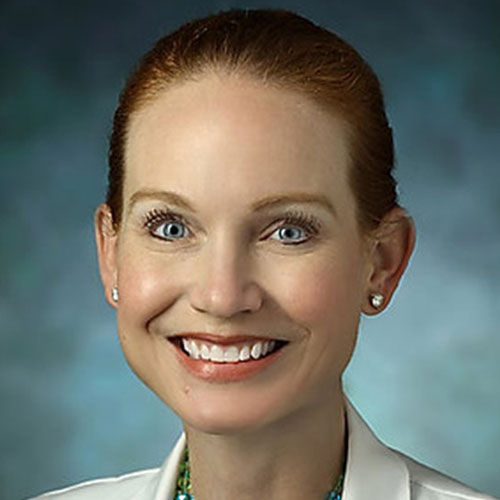2012 Awardee, Johns Hopkins

Dr. Kendall Moseley is the Clinical Director of the Division of Diabetes, Endocrinology & Metabolism, Medical Director of the Johns Hopkins Metabolic Bone & Osteoporosis Center and Co-Director of the Johns Hopkins Multidisciplinary Parathyroid Clinic. Dr. Kendall Moseley, Assistant Professor of Medicine, has set out to demystify sex-specific differences in bone quality in men and women with type 2 diabetes mellitus (T2DM). Despite high bone mineral density (BMD), persons with T2DM are at increased risk for hip fracture compared to those without diabetes. Hip geometry is one measure of bone quality that has not been evaluated in men and women with T2DM. Insufficient hip geometry, or how bones withstand outside bending and crushing forces, could cause men or women to be at higher risk for fracture. Dr. Moseley and her team suspect that with worsening glucose control, hip geometry measurements of bone quality decline despite good bone density. Moreover, they suspect there are important gender differences in the hip geometry of men and women with T2DM that could make one group at greater fracture risk as blood glucose soars out of control.
Awarded: $50,000
What is Dr. Kendall Moseley studying?
Bone quality in diabetic patients
Why study this condition?
Diabetes diminishes bone quality and diabetic patients have an increased risk for fractures.
What did Dr. Moseley find?
Dr. Mosley has been investigating the role of a new class of drugs that increase glucose excretion in the urine (sodium-glucose co-transporter 2 inhibitors). These drugs are increasingly used in the treatment of diabetes and have a positive impact on cardiac and kidney health in these patients. However, they may have a negative effect on bone health, and further assessment of their use in diabetes is necessary.
She has also helped develop a major report from the American Heart Association of the impact of hormonal treatments for breast and prostate on the cardiovascular system. Her inclusion in this expert panel is a testament to her preeminence in her field.
How did The Foundation for Gender-Specific Medicine’s grant help Dr. Kendall Moseley’s research?
In the thirteen years since she received the award, Dr. Moseley has published five papers in prestigious journals, including a position paper on the impact of treatment for breast and prostate cancer on the cardiovascular system from the American Heart Association.
